2020 Virtual Provincial Workshop
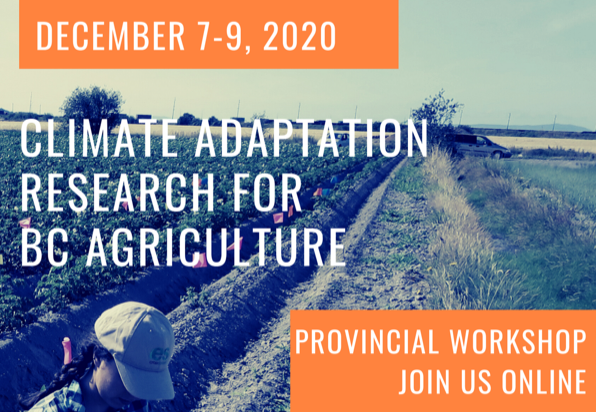
The 4th provincial workshop on Climate Adaptation Research for BC Agriculture was held virtually for 2020. The event, from December 7 – 9, included:
- Applied research webinars for berry and vegetable producers covering pest management strategies, building soil health and innovative practices to adapt to and mitigate climate change
- Keynote presentation by Dr. Hannah Burrack, North Carolina State University on Lessons from the Last 10 Years of Drosophila suzukii: Moving Forward with Management (supported by the H.R. MacCarthy Lecture in Pest Management)
- Interactive workshops to move collaborative strategies forward on cross-cutting issues from sharing pest data to strengthening BC agri-weather networks to applying an indigenous worldview to agriculture research and participatory tools for adaptive planning
- Student research forum to hear from the future leaders in agriculture adaptation research and exchange ideas on networking and support for early career researchers
All sessions were virtual and recordings are available on the ACARN youtube channel and with the workshop program.
Thank you to everyone who joined us! We had over 200 people register with many sessions attracting 100 live participants. There was excellent questions, discussions and new connections made.
View the full workshop program and session video recordings.
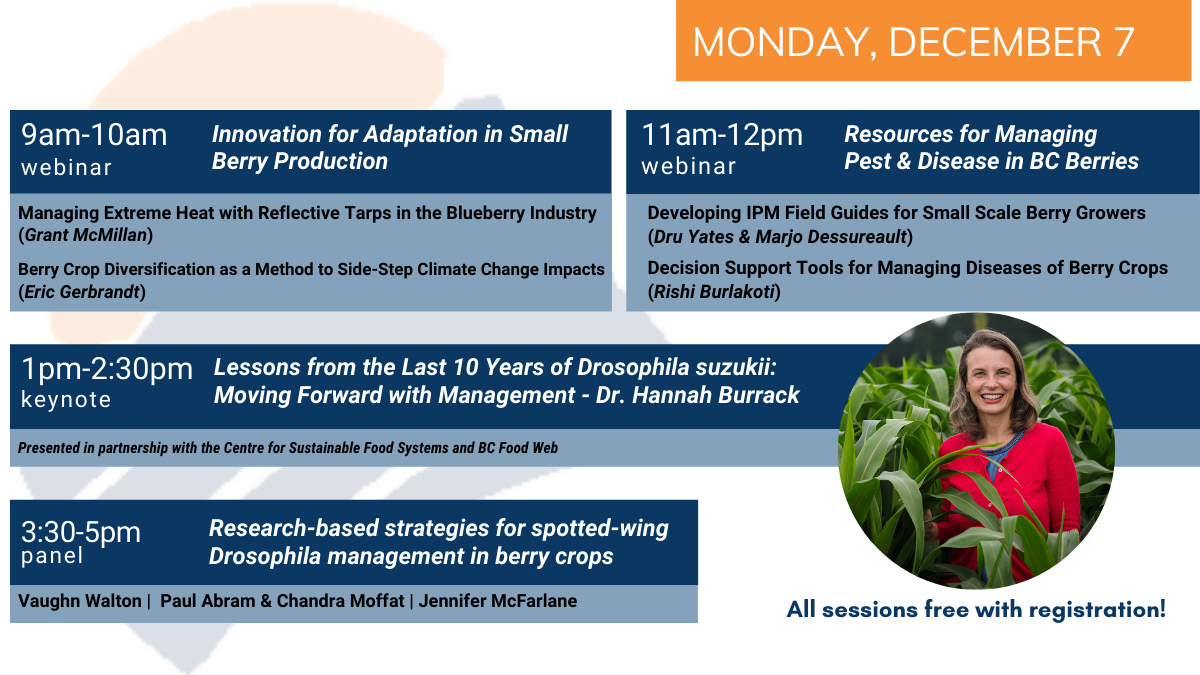
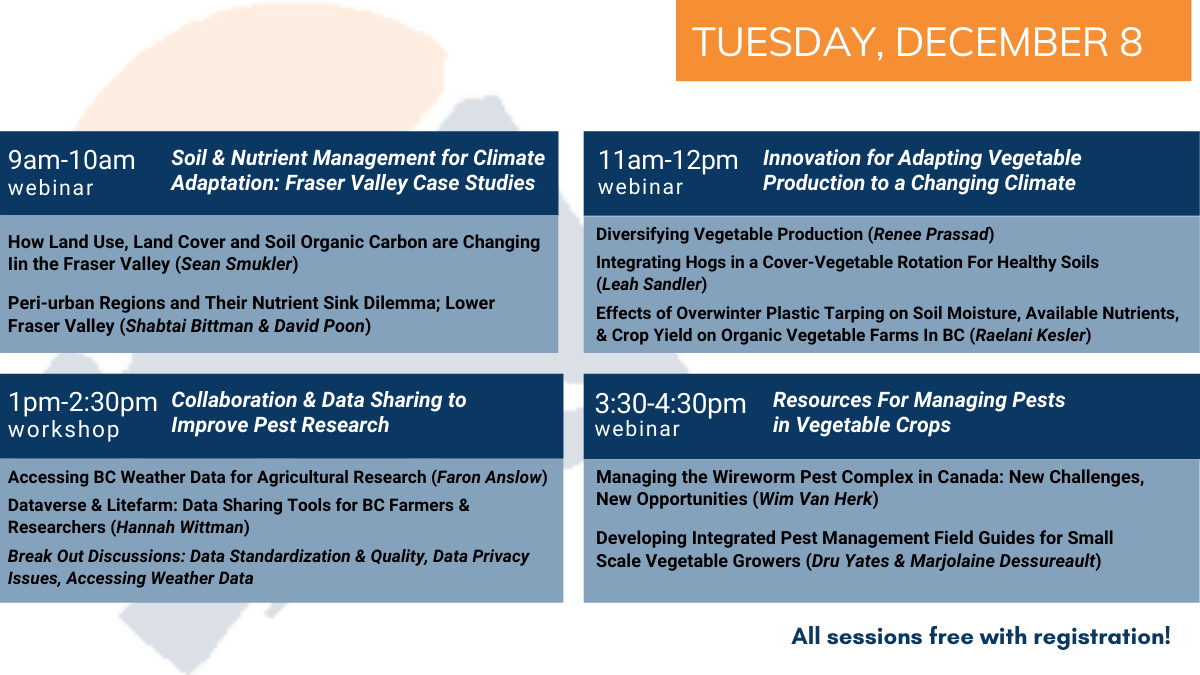
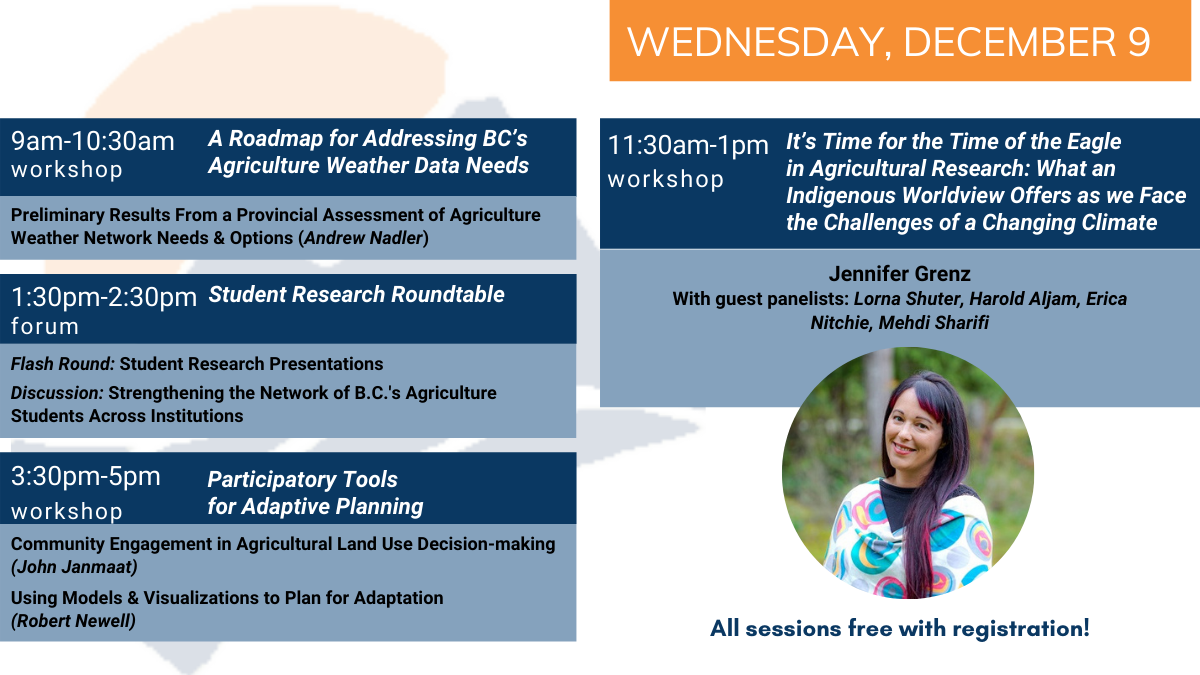
Pre-workshop session
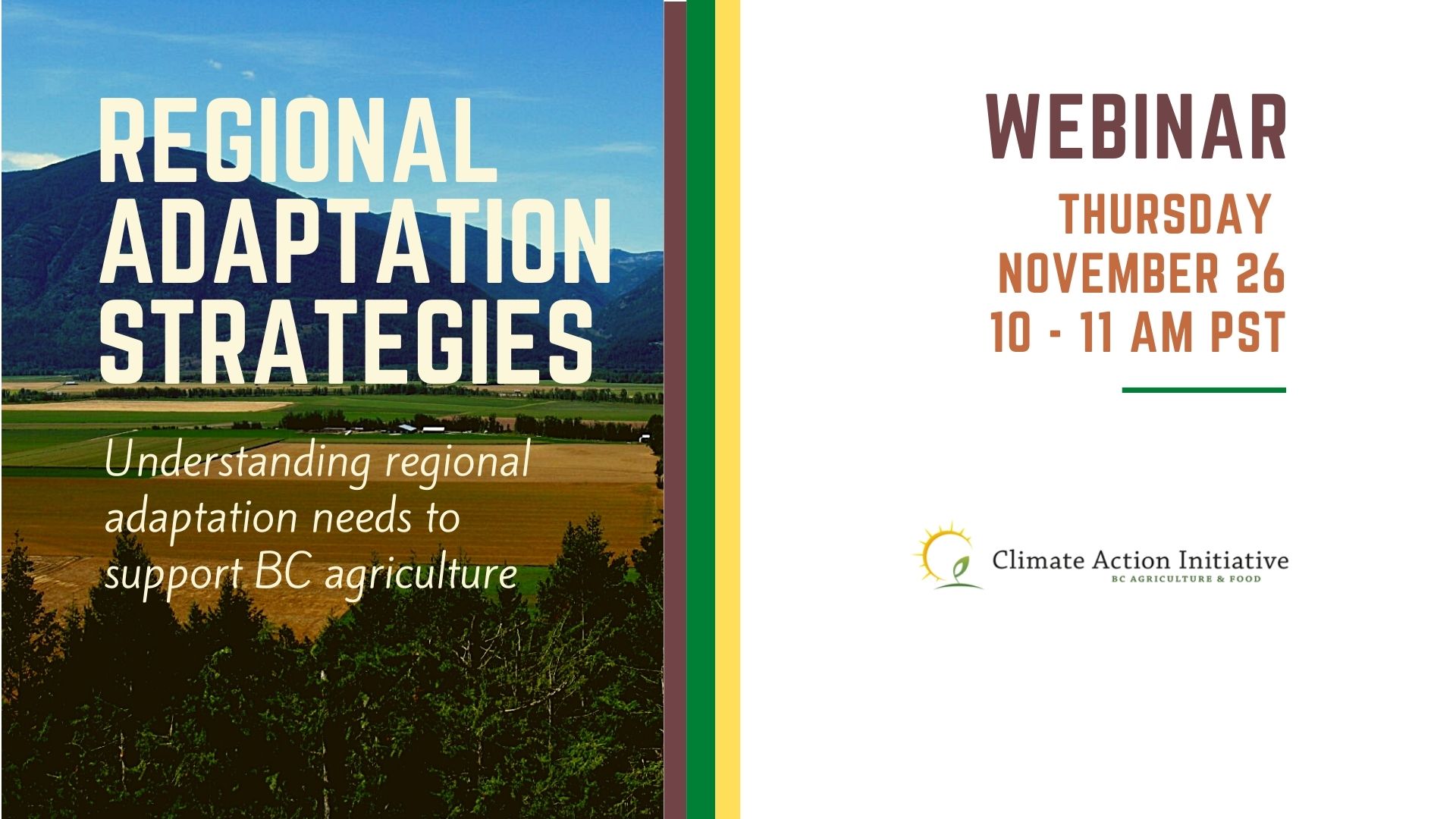
This webinar will introduce you to the results from a decade of consultation, collaboration and strategy development that has identified and prioritized the impact of climate change on B.C.'s major agriculture regions.
The BC Agriculture & Food Climate Action Initiative (CAI)'s Regional Adaptation Program (RAP) brings together producers, agricultural organizations and government staff and agencies to collaboratively identify priority climate impacts and strategies and to implement actions that support agricultural adaptation.
Thank you to our workshop funders
Funding for this workshop has been provided in part by the governments of Canada and British Columbia under the Canadian Agricultural Partnership, a federal-provincial-territorial initiative.
